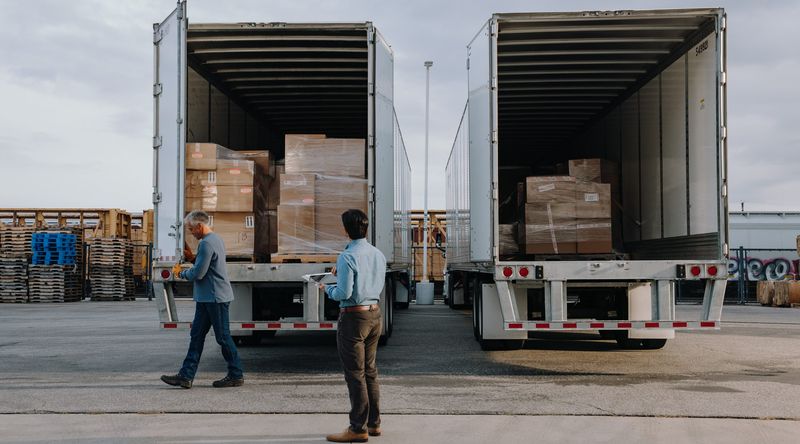In the realm of container drayage, ensuring the safety and security of cargo is paramount. This process involves transporting containers over short distances, often between ports, terminals, or rail yards. However, despite the careful planning and execution involved in drayage operations, unforeseen events can occur, potentially leading to damage or loss of cargo. This is where cargo insurance plays a crucial role.
Importance of Cargo Insurance
Cargo insurance provides financial protection against risks during transit. It covers losses or damages to cargo caused by various factors such as accidents, theft, natural disasters, or even regulatory issues. For businesses engaged in container drayage, having appropriate insurance coverage not only mitigates financial risks but also ensures peace of mind and helps maintain business continuity.
Key Types of Insurance
When it comes to insuring cargo in container drayage, there are two primary types of insurance to consider:
1. General Insurance
General cargo insurance typically covers a broad range of risks during transit. It provides protection against common perils such as:
- Accidents: Including collisions, overturns, or derailments that can damage the cargo.
- Theft: Instances where cargo is stolen or unlawfully taken.
- Natural Disasters: Coverage for events like floods, earthquakes, or hurricanes.
- Fire and Explosion: Damage caused by fires or explosions during transport.
- General Average: Contribution to losses incurred to save the vessel or cargo from a common peril.
General insurance policies vary in terms of coverage limits, deductibles, and specific exclusions. It's essential for businesses to carefully review these details to ensure adequate protection.
2. Special Insurance Policies
In addition to general insurance, there are specialized insurance policies tailored to specific needs or types of cargo. These include:
- Reefer Cargo Insurance: Specifically designed for refrigerated cargo, providing coverage against temperature deviations or equipment malfunctions.
- High-Value Cargo Insurance: For goods with exceptionally high value, such as electronics or luxury goods, offering higher coverage limits.
- Perishable Goods Insurance: Covers perishable items like food products, ensuring compensation in case of spoilage or contamination.
- Project Cargo Insurance: Tailored for oversized or unique cargo shipments, offering comprehensive coverage during complex logistics operations.
Special insurance policies often address niche risks that may not be adequately covered by general cargo insurance alone. Businesses should assess their cargo's unique characteristics and transportation requirements to determine the most suitable insurance solutions.
Tips for Choosing an Insurance Company
Selecting the right insurance company is crucial for obtaining reliable coverage and support in case of a claim. Here are some tips to consider:
- Reputation and Experience: Choose an insurer with a proven track record in cargo insurance and experience in handling claims related to container drayage.
- Coverage Options: Evaluate the range of insurance products offered by the company, ensuring they align with your specific cargo and operational needs.
- Financial Stability: Verify the insurer's financial strength rating to assess their ability to fulfill claims, especially in the event of large-scale losses.
- Claims Process: Understand the claims handling procedures of the insurer, including response times, documentation requirements, and customer support.
- Cost and Deductibles: Compare premiums, deductibles, and coverage limits across different insurers to find a balance between cost-effectiveness and comprehensive protection.
- Legal Compliance: Ensure the insurer complies with relevant regulations and licensing requirements in your jurisdiction to avoid any legal complications.
Choosing an insurance company is not just about finding the cheapest option but rather about selecting a partner that can offer reliable coverage and responsive support throughout the insurance period.
Conclusion
In conclusion, cargo insurance is an indispensable aspect of container drayage operations, providing essential protection against various risks and uncertainties during transit. By understanding the types of insurance available, such as general and specialized policies, businesses can make informed decisions to safeguard their cargo effectively.
To ensure comprehensive coverage for your cargo in container drayage, it's essential to partner with a reputable insurance provider that understands the unique challenges and requirements of your industry. Take proactive steps today to secure your cargo and safeguard your business against unforeseen circumstances.
Call to Action: Learn more about insurance options and how they can benefit your container drayage operations. Contact YK Freight today for expert guidance and tailored insurance solutions that meet your specific needs.
By following these guidelines and understanding the importance of cargo insurance in container drayage, businesses can navigate the complexities of logistics with confidence and resilience.







ASK YOUR QUESTIONS